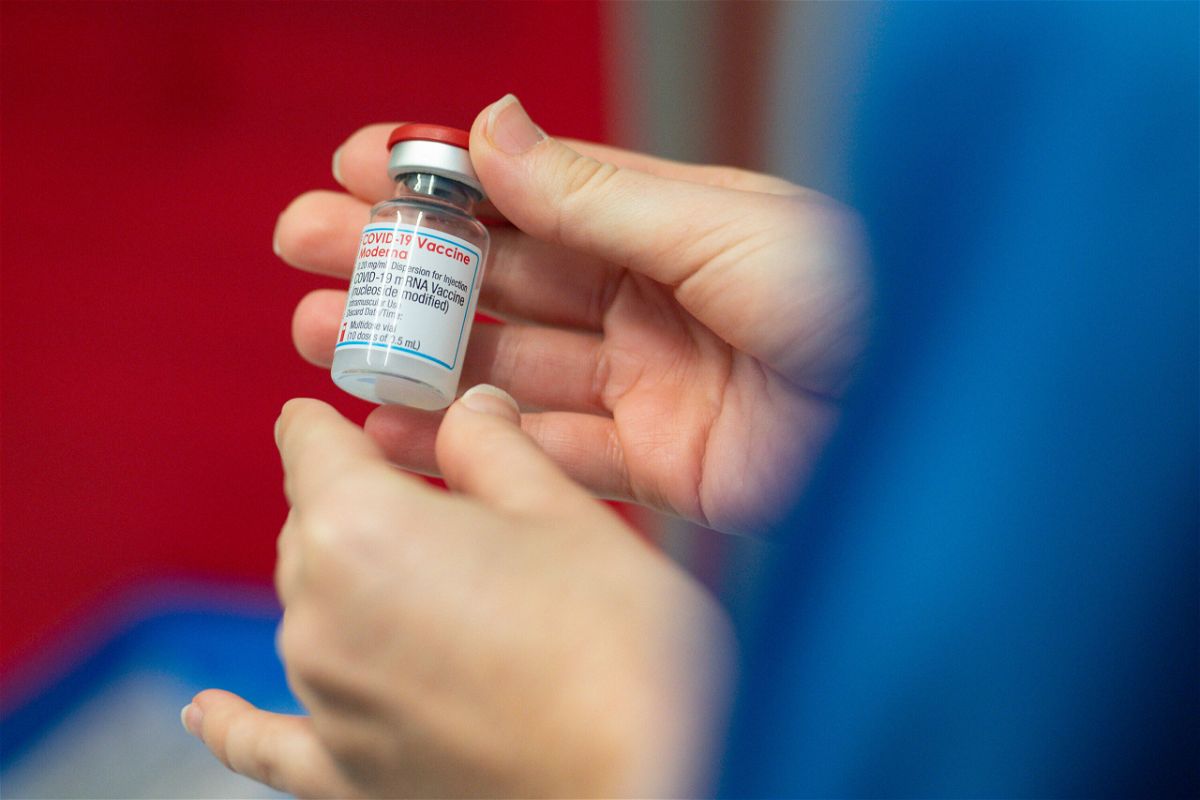Europe’s drug regulator advises Covid-19 booster shots for the immunocompromised

The European Medicines Agency has concluded that a booster dose of the BioNTech/Pfizer and Moderna coronavirus vaccines "may be given to people with severely weakened immune systems
By James Frater, Lindsay Isaac and Lauren Said-Moorhouse, CNN
The European Medicines Agency (EMA) has concluded that a booster shot of the Pfizer/BioNTech and Moderna coronavirus vaccines “may be given to people with severely weakened immune systems, at least 28 days after their second dose,” according to a statement Monday.
The regulator said it had come to the decision to recommend a third shot after studies showed an extra dose of the two vaccines “increased the ability to produce antibodies against the virus that causes COVID-19 in organ transplant patients with weakened immune systems.”
The EMA statement added that there was “no direct evidence” that being able to produce antibodies protected against coronavirus, but “it is expected that the extra dose would increase protection at least in some patients.”
The agency said it would continue to watch for data on the effectiveness of protection.
It also drew a distinction between giving the extra dose to people with compromised immune systems and those without. For people with normal immune systems, the EMA concluded that booster doses of BioNTech/Pfizer “may be considered at least 6 months after the second dose for people aged 18 years and older.”
According to data it evaluated, an extra dose of the BioNTech/Pfizer vaccine caused a rise in antibody levels when the dose is given “approximately 6 months after the second dose in people from 18 to 55 years old.” The EMA said it is currently evaluating data to support a booster dose for the Moderna vaccine for those with normal immune systems.
The EMA directed European Union nations to issue “official recommendations on the use of booster doses, taking into account emerging effectiveness data and the limited safety data.” However, it cautioned that the “risk of inflammatory heart conditions or other very rare side effects after a booster is not known and is being carefully monitored.”
Some European countries had already started deploying booster shots before the EMA’s broad recommendation on Monday. Germany, Italy, France and several other nations are already administering them to people facing higher risk of serious illness.
The US Food and Drug Administration (FDA) and the US Centers for Disease Control and Prevention have also already recommended additional doses for some Americans, including people who are 65 years old or older, those with compromised immune systems and people who live or work in a setting that puts them at a high risk of exposure to Covid-19, such as health care workers, teachers or people living in shelters.
Several studies published in September supported the argument that individuals may require booster doses of Pfizer’s Covid-19 vaccine over time, with data suggesting extra doses would be safe. The reports were part of the scientific evidence analyzed by the FDA — including data from Israel’s booster program which started in August — when coming to its recommendation last month.
Also in September, Dr. Hans Kluge, regional director for Europe at the World Health Organization (WHO), told CNN’s Christiane Amanpour that, so far, there was “no evidence that the general population would need a third jab.”
However, Kluge cautioned that “we should be on alert” and “follow the evidence,” citing Israel as an example. “Quite a proportion of the people who are infected now or end up in hospital were the elderly people who got two jabs,” Kluge said.
When pressed on global vaccine inequity, Kluge called for “political leadership and coordination” to manage the excess supply of vaccine doses.
“There are some estimates of 1.2 billion excess doses in the West between now and the end of the year. But we have to ensure that those excess doses get where they are most needed,” he added.
Previously, WHO Director-General Tedros Adhanom Ghebreyesus called on wealthy nations to refrain from boosting their Covid-19 vaccinations until doses are available to more of the world.
“I’m calling for an extension of the moratorium, until at least the end of the year, to enable every country to vaccinate at least 40% of its population,” he said.
The WHO chief acknowledged that third doses may be needed for those most at risk who see their immunity wane, “but for now, we do not want to see widespread use of boosters for healthy people who are fully vaccinated,” he added.
The-CNN-Wire
™ & © 2021 Cable News Network, Inc., a WarnerMedia Company. All rights reserved.
CNN’s Ivana Kottasova and Harry Hullah contributed to this report.